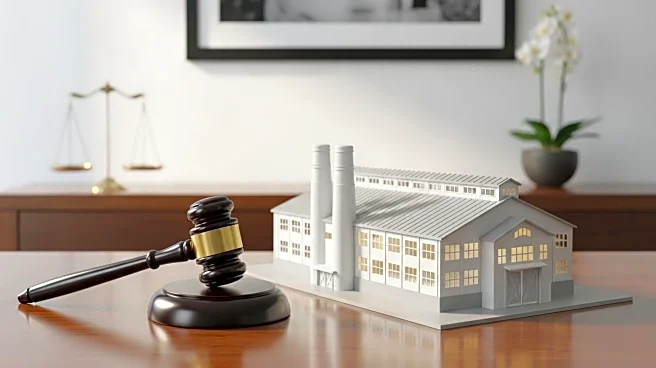What's Happening?
Conservation and community groups have filed an appeal against a federal court decision that upheld a Trump-era Environmental Protection Agency (EPA) rule. This rule exempts factory farms from reporting hazardous air emissions, such as ammonia and hydrogen sulfide, to the public. The appeal, lodged with the U.S. Court of Appeals for the District of Columbia, challenges the legality of the exemption, arguing that it violates the Emergency Planning and Community Right-to-Know Act (EPCRA). The groups contend that the lack of transparency endangers public health, as emissions from factory farms are linked to respiratory diseases and other health issues.
Why It's Important?
The appeal highlights ongoing tensions between environmental regulations and industrial agricultural practices. Factory farms are significant sources of air pollution, contributing to over 12,700 deaths annually in the U.S. due to emissions. The exemption from reporting these emissions undercuts efforts to hold polluters accountable and protect vulnerable communities. The outcome of this legal challenge could set a precedent for how environmental laws are applied to large-scale agricultural operations, potentially influencing future regulatory frameworks and public health policies.
What's Next?
The appeal process will involve legal arguments from both sides, with potential implications for the EPA's regulatory authority and the transparency of industrial emissions. If successful, the appeal could lead to stricter reporting requirements for factory farms, increasing public access to information about air quality and health risks. This case may also prompt legislative action to address gaps in environmental protection laws, ensuring that industrial polluters are held accountable for their impact on public health and the environment.









